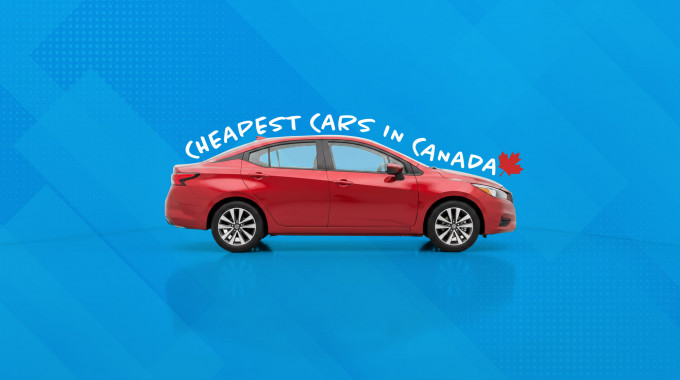
How To Write a Car Bill of Sale in Ontario
Selling or buying a car in Ontario? You’re probably focused on getting the best possible price no matter what side of the sale you’re on, but there’s one crucial detail, in particular, you don’t want to overlook: The bill of sale. Not only is it a document that’s required by law for any used vehicle sale in Ontario, it also protects sellers and buyers alike.
If you’ve never sold or purchased a used car in Ontario before, creating a bill of sale might sound complicated or even a little intimidating. Luckily it’s neither. In fact, the process is actually very simple.
What is a bill of sale?
Let’s start with the basics. A bill of sale is simply a document that records a vehicle’s transfer of ownership from one person to another. It’s not a standardized form and doesn’t have to follow a specific template. It can even be handwritten if you want, as long as it contains some specific information (more on that below).
Why is a bill of sale so important?
Beyond being a legal requirement, there are three principal reasons a bill of sale is so important.
- For starters, when you buy a used vehicle in Ontario you need to register it within six days of the sale and a copy of a completed bill of sale is required for registration.
- Second, a completed bill of sale entitles the new owner to legally claim rights to the vehicle. In other words, it serves as proof of ownership.
- Last but not least, a bill of sale is required to list the purchase price of the vehicle. If the vehicle is pre-owned, this price may determine the amount of sales tax the buyer will pay on the vehicle during registration. The amount of sales tax is determined by either the purchase price or the vehicle’s wholesale value, whichever is greater.
Selling a used vehicle in Ontario (private sale)
If you’re selling a used vehicle in Ontario, you’re required to provide the buyer with a completed Used Vehicle Information Package, also known as a UVIP.
A UVIP contains a variety of vehicle information, such as its registration history, any lien details, the average wholesale value, and so on. Importantly, it also includes a bill of sale section. Additionally, you’ll need to provide the buyer with a completed and signed Application for Transfer, as well as a certificate that verifies the vehicle meets safety standards.
There are some exceptions. For instance, you don’t need to provide the buyer with a completed UVIP if you’re selling the vehicle to a family member. You also don’t need to provide a UVIP when selling a vehicle that was purchased from a registered motor vehicle dealer.
What information do you need to include in a bill of sale?
When you’re creating a bill of sale you can either use a pre-made template from an online service such as Law Depot, the bill of sale section in a UVIP, or you can create your own. It can be handwritten or printed. What matters are that all the elements of the bill of sale are included. Every valid bill of sale should contain the following information about the vehicle:
- Vehicle Identification Number (VIN)
- Make, year, and engine type (gas, diesel, electric)
- Body type, colour, and model
- Purchase price
- Purchase date
- Name, address, and signature of the current owner (seller)
- Name, address, and signature of the buyer
How do I find my VIN number?
If you don’t know your Vehicle Identification Number, you’ll find it on the corner of the dashboard (driver’s side). You can view it through the windshield. You can also find it by opening the driver’s side door and checking the interior frame.
Buying a used vehicle in Ontario (private sale)
The process of buying a used vehicle from a private seller versus a registered dealership is slightly different. For example, registered used vehicle dealers are not required to provide a UVIP.
As a buyer, it’s your responsibility to know which documents a seller is required to provide you with, especially when it comes to a private sale. Not all private sellers will be aware of the information they’re legally required to provide to you, so you need to be aware and ask for the information if it’s not being offered.
As a buyer in a private sale, you should carefully review the UVIP. Ensure there are no liens on the vehicle and ask the seller for ID, then compare it to the vehicle’s ownership record. If they don’t match the seller is not legally allowed to sell the vehicle.
Last but not least, if you’re buying from a private seller, don’t forget to request the bill of sale and ensure it has all of the required information on it (see above). You’ll need to keep the original bill of sale—not a photocopy—as you’ll need it to register your vehicle at a ServiceOntario centre within six days of the sale.
To register the vehicle, you’ll need proof of insurance, your Ontario Driver’s licence, completed UVIP, completed bill of sale, Safety Standards Certificate (if applicable), owner’s permit with the Application for Transfer portion completed, and the current odometer reading.
The easiest way to buy a car:
Get pre-approved for a car loan in minutes and get connected with a local dealer in your area who will show you all the vehicles you qualify for. No more stress, no more wasting time looking at cars you may or may not get approved for. Shop with confidence knowing exactly what you can afford.







